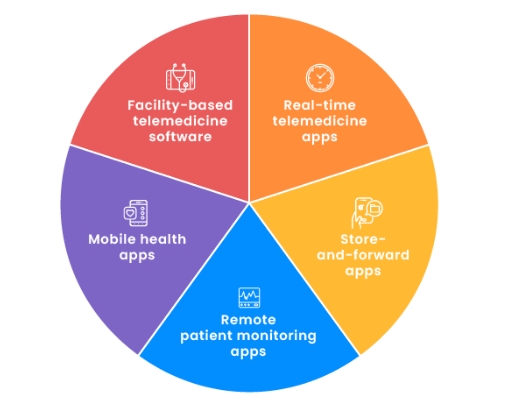Telemedicine has revolutionized the way healthcare is delivered, offering patients the convenience of consulting with medical professionals remotely. There are various types of telemedicine that cater to different healthcare needs. Let’s explore some of these types in this comprehensive guide.
1. Real-time Telemedicine:
Real-time telemedicine involves live interactions between patients and healthcare providers through video conferencing. This type allows for immediate diagnosis and treatment without the need for an in-person visit.
2. Store-and-forward Telemedicine:
Store-and-forward telemedicine involves the transmission of patient medical records, images, and test results to healthcare providers for review. This method is convenient for sharing information quickly and efficiently.
3. Remote Patient Monitoring:
Remote patient monitoring involves the use of wearable devices and technology to track and monitor a patient’s health data. This type of telemedicine is particularly useful for managing chronic conditions and ensuring timely interventions.
4. Mobile Health:
Mobile health, or mHealth, refers to the use of mobile devices such as smartphones and tablets for healthcare purposes. This type enables patients to access medical information, track their health, and communicate with healthcare providers anytime, anywhere.
5. Telepsychiatry:
Telepsychiatry involves providing mental health services remotely through video conferencing and other digital platforms. This type of telemedicine is especially beneficial for individuals who may have limited access to mental health services in their area.
6. Teleconsultation:
Teleconsultation allows patients to consult with specialists and healthcare providers outside of their geographical area. This type of telemedicine is crucial for second opinions, expert advice, and accessing specialized care that may not be available locally.
7. Direct-to-Consumer Telemedicine:
Direct-to-consumer telemedicine enables patients to consult with healthcare providers directly through online platforms or mobile apps. This type of telemedicine offers medical advice, prescriptions, and treatment options without the need for in-person visits.
In conclusion, telemedicine offers a range of options for patients to access quality healthcare remotely. Whether you need a real-time consultation, remote monitoring, or specialized care, there is a telemedicine solution that can meet your needs. By exploring the different types of telemedicine, you can find the right option for your healthcare requirements.

